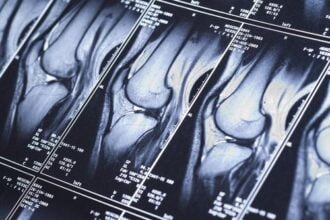Hint: They Aren’t As Good As Your HCAHPS Scores Suggest
Hint: They Aren’t As Good As Your HCAHPS Scores Suggest
Now that over 50% of physicians are employed by hospitals, this is a question that should be on the minds of progressive hospital executive teams. With good reason. Patient-reported outcomes, including satisfaction and loyalty, are going to play an increasing role in determining how much hospitals and physicians are paid. This means that astute hospital marketers will be able to build a strong business case for investing in programs aimed at creating superlative ambulatory and inpatient experiences for patients.
But Our Physicians Already Have High Patient Satisfaction Scores
Health care executives should take little comfort in the global patient satisfaction and loyalty ratings found uniformly in HCAHPS and every patient satisfaction survey.
Generally speaking, “one can assume that the quality of care is, actually, worse than surveys of patient satisfaction (suggest)”according to Avedis Donabedian, MD, the father of today’s quality movement. Donabedian goes on to say that “patients are, in fact, overly patient; they put up with unnecessary discomforts and grant their doctors the benefit of every doubt, until deficiencies in care are too manifest to be overlooked. “
Just look at the quality of physician-patient communication, a key ingredient of the “patient experience” in the physician’s office.
- In only 26% of the visits are patients allowed to complete their opening statement (agenda) without interruption (by the doctor); in 37% the physicians interrupted; and in 37% physician never asked about the patient’s visit agenda.
- Studies suggest that patients do not express their health concerns, expectations or opinions in up to 75 percent of physician visits principally because their doctor never asked.
- Primary care physicians typically spend less than 60 seconds informing patients how to take new medications…or why.
- Primary care physicians and patient disagree about the diagnosis, treatment, and cause/severity of their condition over 50% of the time.
- Over 50% of patients walk out of their doctor’s office not understanding what they were told, including why or how to take their medications.
For their part, patients today are hard pressed to rate the effectiveness of their relationship with their doctor. The evidence shows that poor physician-patient communications is the norm rather than the exception. As such, most patients do not appreciate all the ways in which their doctor could in fact do a better job communicating with them.
Why Is Any Of This Important?
Simple. Hospital and physician reimbursement is increasingly determined by things that are closely linked with the a physician’s patient communication skills:
- improved patient outcomes
- fewer hospital re-admits
- fewer medical errors
So if hospital chiefs of staff or health plan medical directors are looking for a way to improve these types of metrics consider improving the way your physicians and patients talk to each other. In the long run patients and physicians will thank you for doing so.
That’s what I think..what’s your opinion?
![]()









